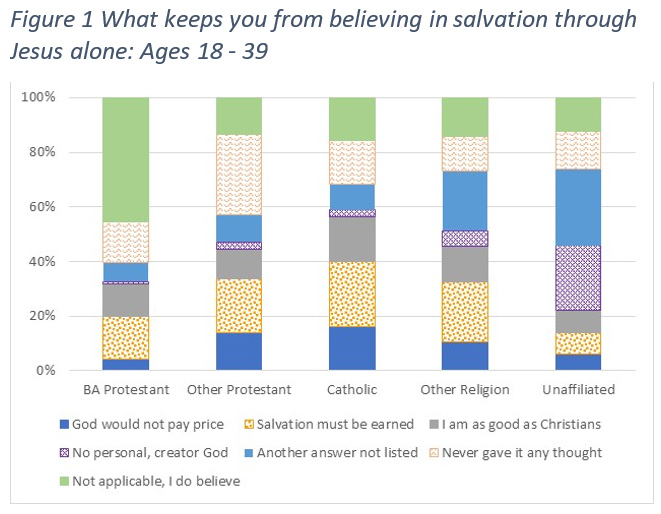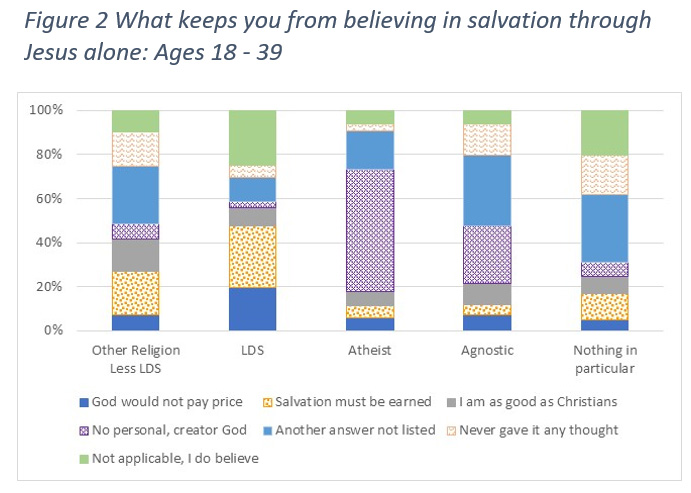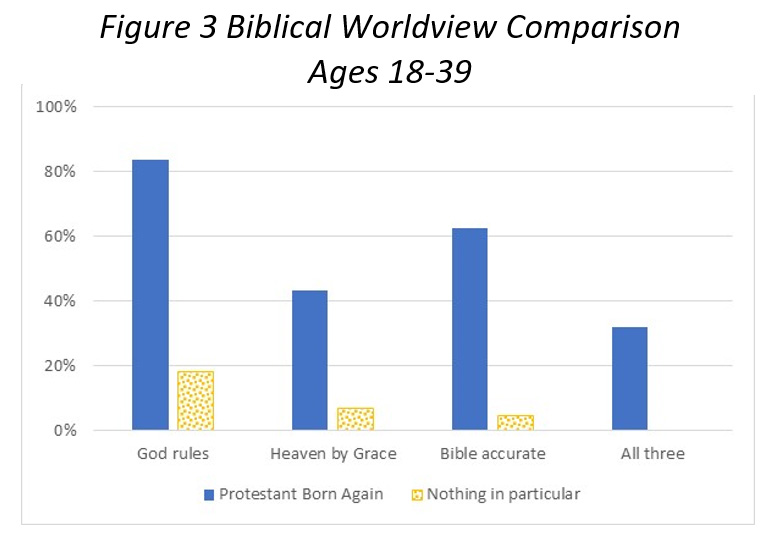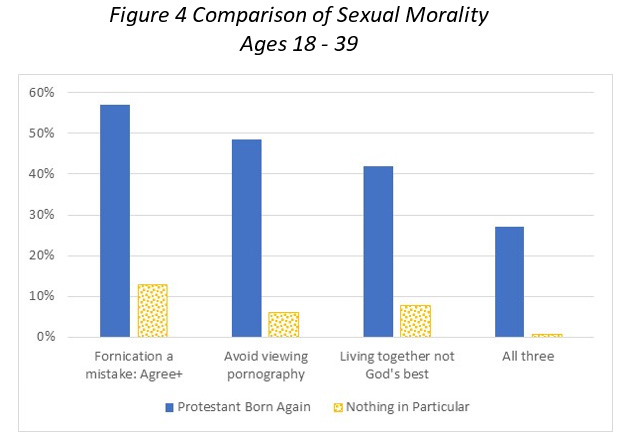Dr. Michael Gleghorn looks at how God has acted in Christ to address those things which ail us most: sin, suffering, death, and our broken relationship with God.
 Early in the book of Job, Eliphaz the Temanite declares that “man is born for trouble, as sparks fly upward” (5:7). Whether it’s the trouble that befalls us as we’re simply minding our own business or the trouble we bring upon others (or even ourselves), difficulties, sin, and suffering seem to plague us wherever we turn. Just think for a moment about some of the natural evils which afflict the human race. This class of evils includes both natural disasters like hurricanes, tsunamis, tornadoes, and earthquakes, and diseases like cancer, leukemia, Alzheimer’s and ALS. While natural evils are bad enough, they are only part of the problem. In addition to these, we must also consider all the moral evils which human beings commit against God, one another, and themselves. This second class of evils includes things like hatred, blasphemy, murder, rape, child abuse, terrorism, and suicide. Taken together, the scope and magnitude of human sin and suffering in the world are truly mind-boggling. What does God have to say about issues such as these? Even better, what (if anything) has He done about them?
Early in the book of Job, Eliphaz the Temanite declares that “man is born for trouble, as sparks fly upward” (5:7). Whether it’s the trouble that befalls us as we’re simply minding our own business or the trouble we bring upon others (or even ourselves), difficulties, sin, and suffering seem to plague us wherever we turn. Just think for a moment about some of the natural evils which afflict the human race. This class of evils includes both natural disasters like hurricanes, tsunamis, tornadoes, and earthquakes, and diseases like cancer, leukemia, Alzheimer’s and ALS. While natural evils are bad enough, they are only part of the problem. In addition to these, we must also consider all the moral evils which human beings commit against God, one another, and themselves. This second class of evils includes things like hatred, blasphemy, murder, rape, child abuse, terrorism, and suicide. Taken together, the scope and magnitude of human sin and suffering in the world are truly mind-boggling. What does God have to say about issues such as these? Even better, what (if anything) has He done about them?
The Christian philosopher Alvin Plantinga has written
As the Christian sees things, God does not stand idly by, cooly observing the suffering of His creatures. He enters into and shares our suffering. He endures the anguish of seeing his son, the second person of the Trinity, consigned to the bitterly cruel and shameful death of the cross. Some theologians claim that God cannot suffer. I believe they are wrong. God’s capacity for suffering, I believe, is proportional to his greatness; it exceeds our capacity for suffering in the same measure as his capacity for knowledge exceeds ours. Christ was prepared to endure the agonies of hell itself; and God, the Lord of the universe, was prepared to endure the suffering consequent upon his son’s humiliation and death. He was prepared to accept this suffering in order to overcome sin, and death, and the evils that afflict our world, and to confer on us a life more glorious than we can imagine.{1}
According to Plantinga, then, God has acted, and acted decisively through His Son, to address those things which ail us most—sin, suffering, death, and our broken relationship with God. In what follows, we will briefly examine each of these ailments. More importantly, however, we will also see how God has acted in Christ to heal our bleak condition, thereby giving us encouragement, strength and hope, both now and forevermore.
Moral Evil
When Adam and Eve first sinned in the garden (Gen. 3:6), they could hardly have imagined all the tragic consequences that would follow this single act of disobedience. Through this act, sin and death entered the world and the human condition was radically altered (Rom. 5:12-19). Human nature had become defiled with sin and this sinful nature was bequeathed to all mankind. The human race was now morally corrupt, alienated from God and one another, subject to physical death, and under the wrath of God. The entire creation, originally pronounced “very good” by God (Gen. 1:31), was negatively affected by this first act of rebellion. Like the ripples that radiate outward when a stone is thrown into a calm body of water, the consequences of that first sin have rippled through history, bringing evil, pain, and suffering in their wake. As the Christian philosopher William Lane Craig has noted, “The terrible human evils in the world are testimony to man’s depravity in his state of spiritual alienation from God.”{2} Indeed, we are so hopelessly entangled in this web of sin and disobedience that we cannot possibly extricate ourselves. This, according to the Bible, is the sorry plight in which all men naturally find themselves.
Fortunately for us, however, God has acted to free us from our enslavement to sin, to disentangle us from the web that holds us captive, and to reconcile us to Himself. He did this by sending His Son to so thoroughly identify with us in our painful predicament that He actually became one of us. By identifying Himself with sinners who were under the wrath of God, He was able to take our sins upon Himself and endure God’s wrath in our place, so that we might be reconciled to God by placing our trust in Him. The apostle Paul put it this way: God made Christ “who knew no sin to be sin on our behalf, that we might become the righteousness of God in Him” (2 Cor. 5:21).
In the Old Testament book of Deuteronomy, we’re told that anyone hanged on a tree because of their sins is “accursed of God” (21:23). In the New Testament, Paul picks up on this idea and says that through His substitutionary death on the cross, Christ became “a curse for us” (Gal. 3:13). We should not lose sight of the significance of these words. By identifying Himself with the guilty human race, and becoming a curse for us, He has opened the way for us to be freed from our sins and reconciled to God as we are identified with Him through faith. This is just one of the ways in which Christ has met the desperate needs of the human condition.
Natural Evil
Another reason why we suffer arises from what philosophers and theologians call natural evil. Natural evil refers to all the causes of human pain and suffering which are not brought about by morally-responsible agents. This would include the pain and suffering arising from natural disasters like earthquakes, famines, and storms, as well as diseases like cancer and ALS.
Now the question I want to pose is this: Is there a sense in which Christ is also a solution to the problem of natural evil? And if so, then how should we understand this? When we examine the life and ministry of Jesus as it’s recorded in the Gospels, we can hardly help but be struck by the number of miracles He performs. He walks on water, calms raging storms, feeds thousands of people with a few loaves and fish, cleanses lepers, heals the sick, restores sight to the blind, and even raises the dead! Although some might demur at all these accounts of miracles, Craig has noted that “the miracle stories are so widely represented in all strata of the Gospel traditions that it would be fatuous to regard them as not rooted in the life of Jesus.”{3}
So what is the significance of Jesus’ miracles? According to New Testament scholar Ben Witherington, Jesus’ miracles show him to be God’s special agent of blessing, healing, liberation, and salvation, as well as the “one who brings about the conditions associated with the final . . . dominion of God.”{4} Since the kingdom of God is portrayed in Scripture as a reign of peace, prosperity, health, well-being and blessing, Jesus’ miracles of healing, as well as his demonstrations of power over nature, indicate that He is indeed capable of ushering in such a wonderful kingdom.{5} And if Jesus has the power to bring in an era of health and well-being, both for our physical bodies and for the physical universe, and if he in fact will do so, then he clearly provides a solution to the problem of natural evil. Ultimately, in the new heaven and new earth, which God will give to those who love Him, we are promised that there “will be no more death or mourning or crying or pain, for the old order of things has passed away” (Rev. 21:4).
Physical Death
The apostle Paul, in his first letter to the Corinthians, described death as an “enemy” (1 Cor. 15:26). People fear death for any number of reasons. Some fear that the process of dying will be painful. Others dread the thought of leaving behind the ones they love. Some may fear that death is simply the end, that whatever joys and pleasures this life holds, death takes them away forever. But others may fear that there is an afterlife and worry that things may not go well for them there. For many people, however, death is feared as the great unknown.{6} Friends and relatives die and we never see or hear from them again. For these people, death is like the ultimate black-hole, from which nothing and no one can ever escape.
But according to the Bible, Christ did escape the snares of death, and in doing so He dealt our mortal enemy a mortal blow of his own. I said that Paul describes death as an “enemy,” but this is simply to inform us of the fact that our enemy has been conquered by Christ. “The last enemy that will be abolished,” he writes, “is death” (1 Cor. 15:26). But how has Christ conquered this enemy? And how does His victory help us?
Christ conquered death through his resurrection from the dead and all who put their trust in Him can share in his victory. Pastor Erwin Lutzer has written:
Thus the resurrection of Jesus is the cornerstone of the Christian faith. Standing at the empty tomb, we are assured of the triumph of Jesus on the Cross; we are also assured that He has conquered our most fearsome enemy. Yes, death can still terrify us, but the more we know about Jesus, the more its power fades.{7}
Consider the life and death of the great Reformation theologian Martin Luther. As a young Augustinian monk, Luther struggled with a very sensitive conscience and a terrible fear of death. But once he understood the gospel and placed his trust in Christ, his fear gradually began to fade. By the time he died, his fear was gone. It’s reported that on his deathbed, he recited some promises from the Bible, commended his spirit to God, and quietly breathed his last.{8} Believing that Christ had conquered death and given him eternal life, he was able to die at peace and without any fear. And this is the hope of all who trust in Christ!
The Weight of Glory
Christian theologians sometimes describe the knowledge of God as “an incommensurable good.”{9} By this they mean that knowing God in an intimate, personal way is quite literally the greatest good that any created being can experience. It is an “incommensurable” or “immeasurable” good—a good so great that it surpasses our ability even to comprehend. The apostle Paul once prayed that the Ephesians might “know the love of Christ which surpasses knowledge” (Eph. 3:19). He understood that “intimate relationship with God . . . is incommensurately good-for created persons.”{10}
Of course, this doesn’t mean that one who is intimately related to God will never experience any of the trials and difficulties of life. In fact, it’s possible that such a person will actually experience more trials and difficulties than would have been the case had they not been intimately related to God! Knowing the love of Christ doesn’t make one immune to suffering. It does, however, provide indescribable comfort while going through it (see 2 Cor. 1:3-5).
The apostle Paul understood this quite well. In his second letter to the Corinthians, he described himself as a servant of God who had suffered afflictions, hardships, beatings, imprisonments, labors, sleeplessness, and hunger (2 Cor. 6:4-5). In spite of this, however, he did not lose heart. He famously wrote that “momentary, light affliction is producing for us an eternal weight of glory far beyond all comparison” (2 Cor. 4:17).
But how could Paul describe his sufferings as just a “momentary, light affliction”? Because, says Craig, he had an eternal perspective. “He understood that the length of this life, being finite, is literally infinitesimal in comparison with the eternal life we shall spend with God.”{11}
The greatest hunger of the human heart is to know and experience the love and acceptance of God and to enjoy Him forever. In his magnificent sermon “The Weight of Glory,” C.S. Lewis wrote, “In the end that Face which is the delight or . . . terror of the universe must be turned upon each of us either with one expression or . . . the other, either conferring glory inexpressible or inflicting shame that can never be . . . disguised.”{12} Incredibly, just as Christ has dealt with the problems of sin, suffering, and death, He has also acted decisively to reconcile us to God. Through faith in him, anyone who wants can eventually experience “an eternal weight of glory far beyond all comparison” (2 Cor. 4:17).
Notes
2. Craig, Hard Questions, Real Answers, 96-97.
3. William Lane Craig, Reasonable Faith: Christian Truth and Apologetics, 3rd ed. (Wheaton: Crossway Books, 2008), 324.
4. Ben Witherington, The Christology of Jesus (Minneapolis: Fortress Press, 1990), 43-44.
5. Some biblical passages that pertain to Christ’s coming kingdom are Isaiah 11:1-9, Matthew 19:28, and Acts 3:19-21.
6. I was reminded of many of these examples while watching the round table discussion on suffering and death in Catherine Tatge, “The Question of God: Sigmund Freud and C.S. Lewis” (U.S.A.: PBS Home Video, 2004).
7. Erwin W. Lutzer, The Vanishing Power of Death (Chicago: Moody Publishers, 2004), 13.
8. Mike Fearon, Martin Luther (Minneapolis: Bethany House Publishers, 1986), 157-58.
9. See, for example, Craig, Hard Questions, Real Answers, 100.
10. Marilyn McCord Adams, Christ and Horrors: The Coherence of Christology (New York: Cambridge University Press, 2006), 47.
11. Craig, Hard Questions, Real Answers, 99.
12. C.S. Lewis, “The Weight of Glory,” in The Weight of Glory and Other Addresses, ed. Walter Hooper (New York: Macmillan Publishing Co., 1980), 13.
© 2009 Probe Ministries


 To get a better understanding of what drives these results, we dove further into the makeup of each of these two groups. The results are shown in Figure 2.
To get a better understanding of what drives these results, we dove further into the makeup of each of these two groups. The results are shown in Figure 2. Let’s compare the results for Born-again Protestants and those who claimed to be Nothing in Particular. As shown in Figure 3, for each of the questions those agreeing with a biblical worldview among the Nothing in Particulars is a small fraction of those among Born-again Protestants. When we combine the three questions together, we see one out of three Born-again Protestants vs. no NIPs. Certainly, some of these NIPs came from an evangelical background, but none of them interviewed in our survey ascribe to a basic evangelical worldview as adults. As noted in our first report, one in three orn-again Protestants is a disappointing percentage ascribing to these biblical worldview questions, but it is certainly dramatically better than the Nothing in Particular group.
Let’s compare the results for Born-again Protestants and those who claimed to be Nothing in Particular. As shown in Figure 3, for each of the questions those agreeing with a biblical worldview among the Nothing in Particulars is a small fraction of those among Born-again Protestants. When we combine the three questions together, we see one out of three Born-again Protestants vs. no NIPs. Certainly, some of these NIPs came from an evangelical background, but none of them interviewed in our survey ascribe to a basic evangelical worldview as adults. As noted in our first report, one in three orn-again Protestants is a disappointing percentage ascribing to these biblical worldview questions, but it is certainly dramatically better than the Nothing in Particular group. The results from our survey are shown in Figure 4. Once again, we see a large difference between these two groups. Clearly, the NIPs do not ascribe to a biblical view on sexual morality. The majority of Born-again Protestants do not ascribe to those beliefs either, but a significant minority of them do.
The results from our survey are shown in Figure 4. Once again, we see a large difference between these two groups. Clearly, the NIPs do not ascribe to a biblical view on sexual morality. The majority of Born-again Protestants do not ascribe to those beliefs either, but a significant minority of them do.